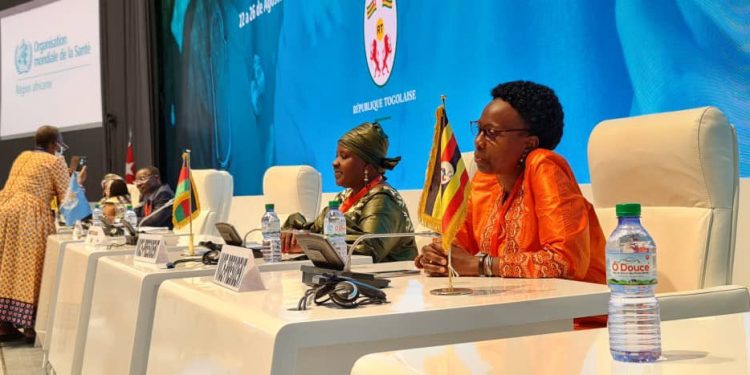Minister for Health Dr. Jane Ruth Aceng Ocero joined fellow African health ministers to adopt a new eight-year strategy to transform health security and emergency response on the continent at the 72nd session of the World Health Organization (WHO) Regional Committee for Africa, the organization said.
The Regional Strategy for Health Security and Emergencies 2022-2030 was adopted in Lome, the Togolese capital, the WHO said Thursday.
The member states agreed to reach 12 targets by 2030 to strengthen their capacity to prevent, prepare for, detect and respond to health emergencies, including 80 percent of member states having predictable and sustainable health security financing, 90 percent mobilizing an effective response to public health emergencies within 24 hours of detection, and all countries having 80 percent of health districts with functional service delivery and quality improvement programs.
“Prior to the emergence of COVID-19, the top causes of epidemics in the region were cholera, measles, yellow fever, meningococcal meningitis, influenza and viral haemorrhagic fevers, most of which are preventable by strengthening routine immunization,” the WHO noted.
COVID-19 underscored the need to improve surveillance, diagnostics, treatment and a range of health services in Africa, it said.
According to the WHO, up to 4 billion U.S. dollars is needed annually from international and domestic sources to fully fund core health security capacities in Africa and better prepare for the next pandemic.
WHO Regional Director for Africa Matshidiso Moeti said that COVID-19 was a wake-up call for the African region to prioritize building resilient health systems capable of providing quality healthcare while coping with public health emergencies.











